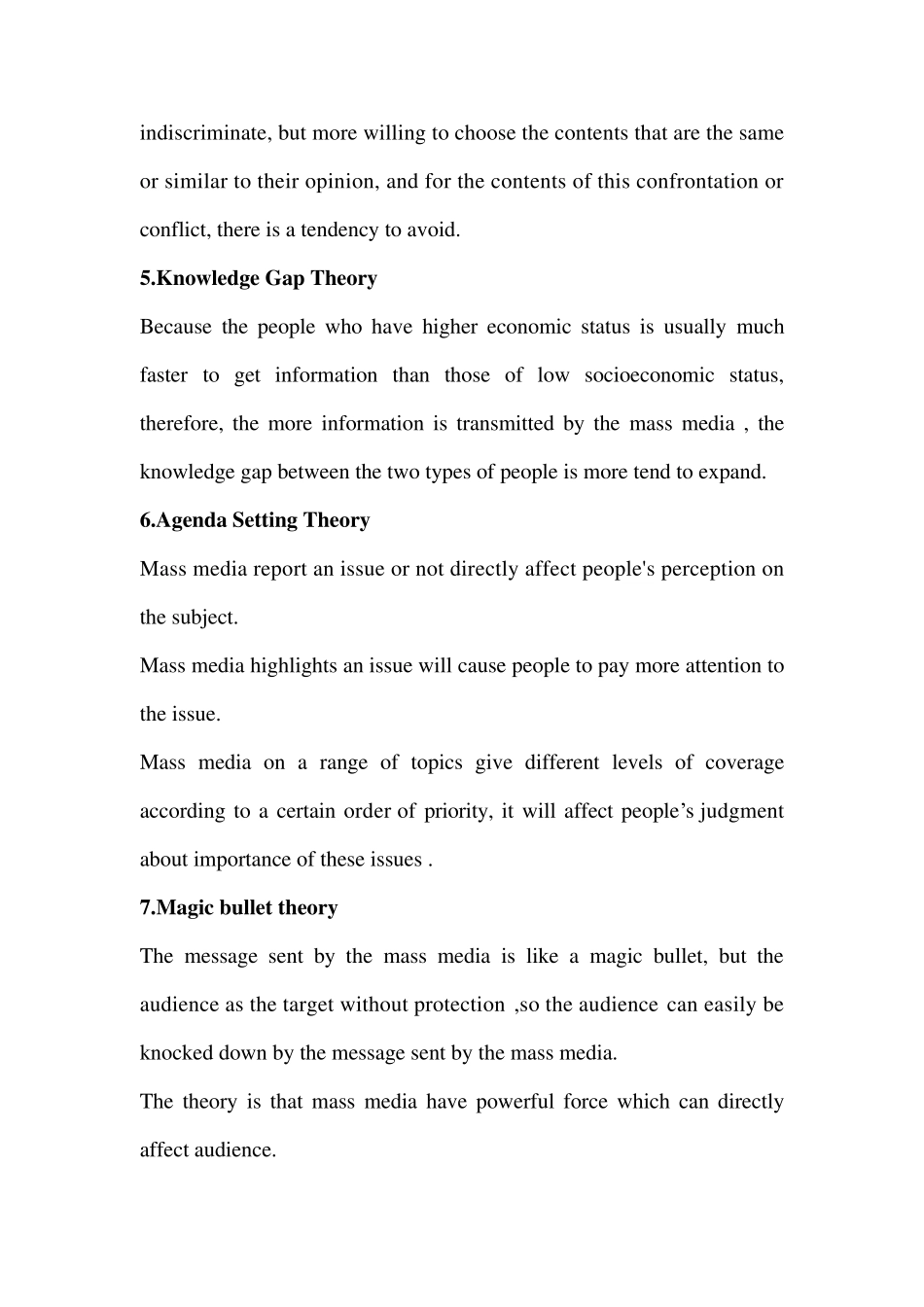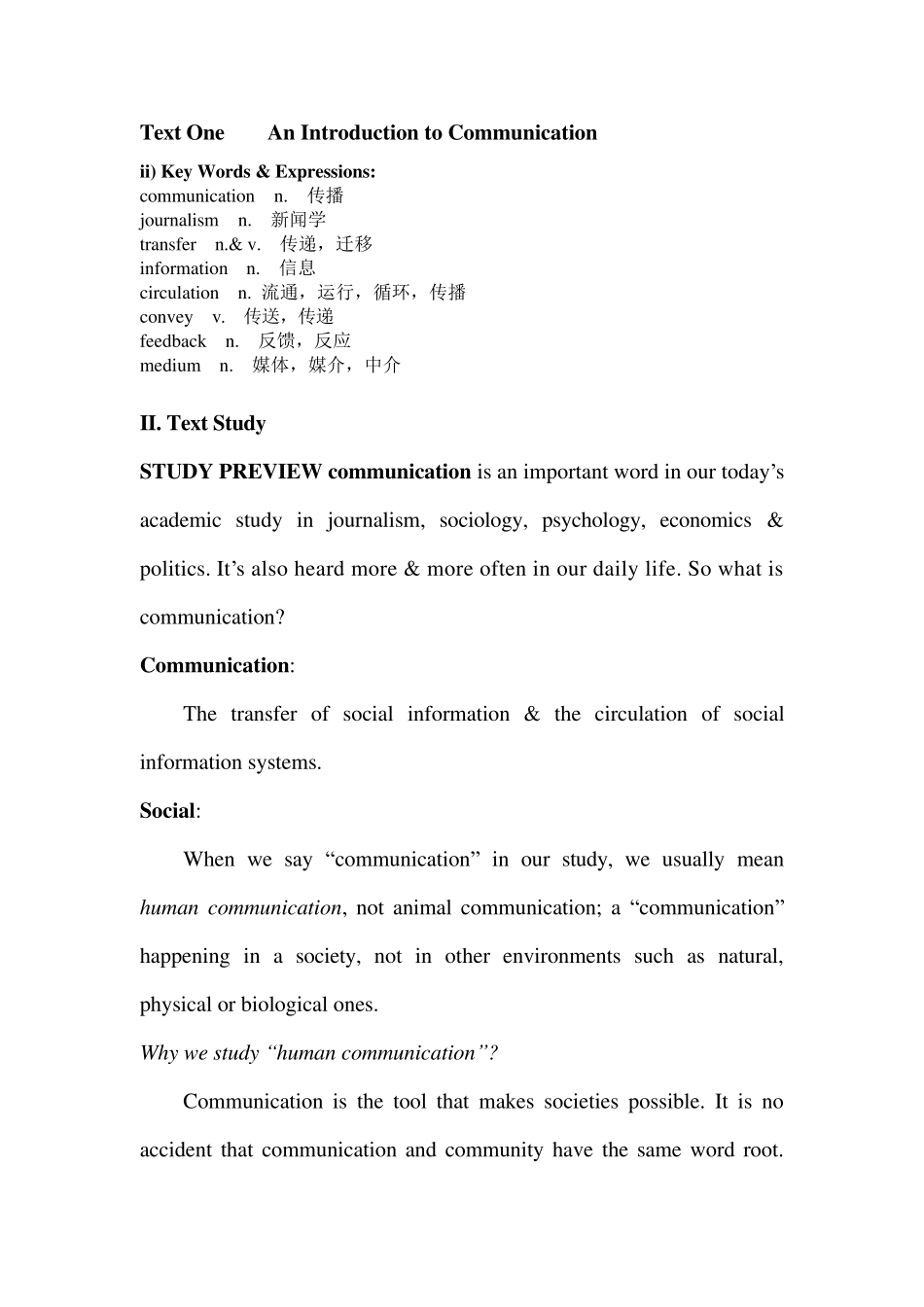1.Opinion Leaders Active in information networks, have many information channels ,so they can often provide information and advice for others and can influence others. 2.The Spiral of Silence For a controversial issue, people will watch the "climate of opinion" before they make comments . judging their opinion whether the "majority opinion", when people feel that their views are "majority" or in the "advantage" , it will tend to boldly express this opinion; when found his views are "a few" or in a "disadvantage" they often remain "silent." The more people remain silent, the more feel that their views are not well accepted, thus a result, the more they tend to remain silent. Repeated several times, they form representing "dominant" status views and more powerful, while holding "inferior" opinions of people sound more and more weak, such a cycle, forming a "one more loudly, and the other more and more silent spiral down the process. " 3.Gatekeeper Lewin was first proposed this idea. The information was screened and filtered by communicator. Communicators decide what we can see and how we can see . 4.Selective exposure hypothesis Audience in the contact information of the mass media is not indiscriminate, but more willing to choose the contents that are the same or similar to their opinion, and for the contents of this confrontation or conflict, there is a tendency to avoid. 5.Knowledge Gap Theory Because the people who have higher economic status is usually much faster to get information than those of low socioeconomic status, therefore, the more information is transmitted by the mass media , the knowledge gap between the two types of people is more tend to expand. 6.Agenda Setting Theory M...


